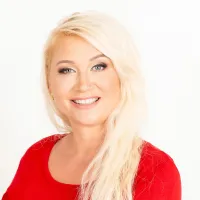Transform your life with Heidi´s trainings

The nine faces of anxiety
We feel anxious when we are worried, stressed or afraid - mainly about things that are about to happen or things we fear might happen in the future. This is a perfectly normal reaction when a person feels threatened. Anxiety can be experienced in many different ways. If the anxiety you experience always has certain characteristics, your doctor may or may not assign you a specific type of anxiety disorder. The most common types of anxiety disorder are: generalised anxiety disorder (GAD), social anxiety disorder, panic disorder, phobia, post-traumatic stress disorder (PTSD), obsessive-compulsive disorder (OCD), health disorder, body dysmorphic disorder (BDD), perinatal disorder or perinatal OCD.
Generalised Anxiety Disorder (GAD) - This is when there is a tendency to worry uncontrollably about various everyday things. As anxiety has many different symptoms, it is a fairly general diagnosis, which means that two people's experiences of this diagnosis may not be absolutely identical.
Social anxiety disorder - This diagnosis means that you have a very high level of fear or anxiety before going to crowded places or attending parties. This diagnosis is also known as social phobia.
Panic disorder - In this case, frequent panic attacks are experienced for no obvious reason. Usually, the panic disorder patient is in constant fear of a new panic attack until the fear itself can trigger the feared panic attack.
Phobias - A phobia is an extreme fear or anxiety caused by a specific situation (e.g. situations that require interaction) or thing (e.g. spiders, snakes).
Post-traumatic stress disorder (PTSD) - This diagnosis is given if you have problems with anxiety after experiencing something traumatic. PTSD can cause persistent flashbacks or nightmares about the traumatic situation you experienced, where you would relive it all as if you were living it all over again, feeling the same fear and anxiety you felt in the actual situation.
Obsessive-compulsive disorder (OCD) - This diagnosis is given when a patient has persistent obsessive thoughts or compulsive behaviour.
Health disorder - In this case, obsessive-compulsive behaviour is experienced in relation to illness. The patient tends to constantly search (e.g. on the internet) for symptoms of various illnesses and check that they do not have these symptoms. This is associated with OCD.
Dysmorphic body dysmorphic disorder (BDD) - This diagnosis involves experiencing obsessive-compulsive thoughts about one's physical appearance.
Perinatal or perinatal OCD - Some women experience anxiety problems during pregnancy or the first year after giving birth.
Have you visited different doctors and tried seemingly endless medications, but nothing seems to help?
I can help you, just as I helped a young woman who had been suffering from depression for 8 years.
"Before the NPA weekend, I had already been depressed for about 8 years, almost half my life. I don't remember a lot of my life because I had other mental illnesses like obsessive-compulsive disorder, dissociative disorder, post-traumatic stress disorder from having a knife to my throat in my own home and because I didn't want to be with this man anymore. I was suffering from a lot of anxiety, panic, fatigue, etcetera. I always knew that there was no way out of it and that I would surely die by my own hand.
I also left secondary school. I saw many different psychiatrists, therapists, I was also hospitalised twice and during that time I stopped taking antidepressants several times because I thought I was cured.
During the weekend of the NPA, we did a lot of processes, I was immediately much happier and freer, but it was only a month after that that I realised that I was no longer depressed and that I was able to live, to work, to be happy. Now half a year has passed and with every training and session I am growing into a new person and a new life.
With anxiety, I now find it very easy and pleasant to communicate with people. My OCD used to be that it took me 4 hours to leave the house, 2 hours to go to bed and I used to clean up every day until I panicked that I wouldn't be able to stop and I would die from it. Now I'm a clean freak too, but that's not a problem for me. I also used to have a dissociative disorder where I would switch off, so to speak, and not be in touch with my surroundings, but I don't even remember that anymore, I've had an easy and happy life for the last six months and I experience normal emotions."

© 2025 Heidi Plumberg International OÜ

